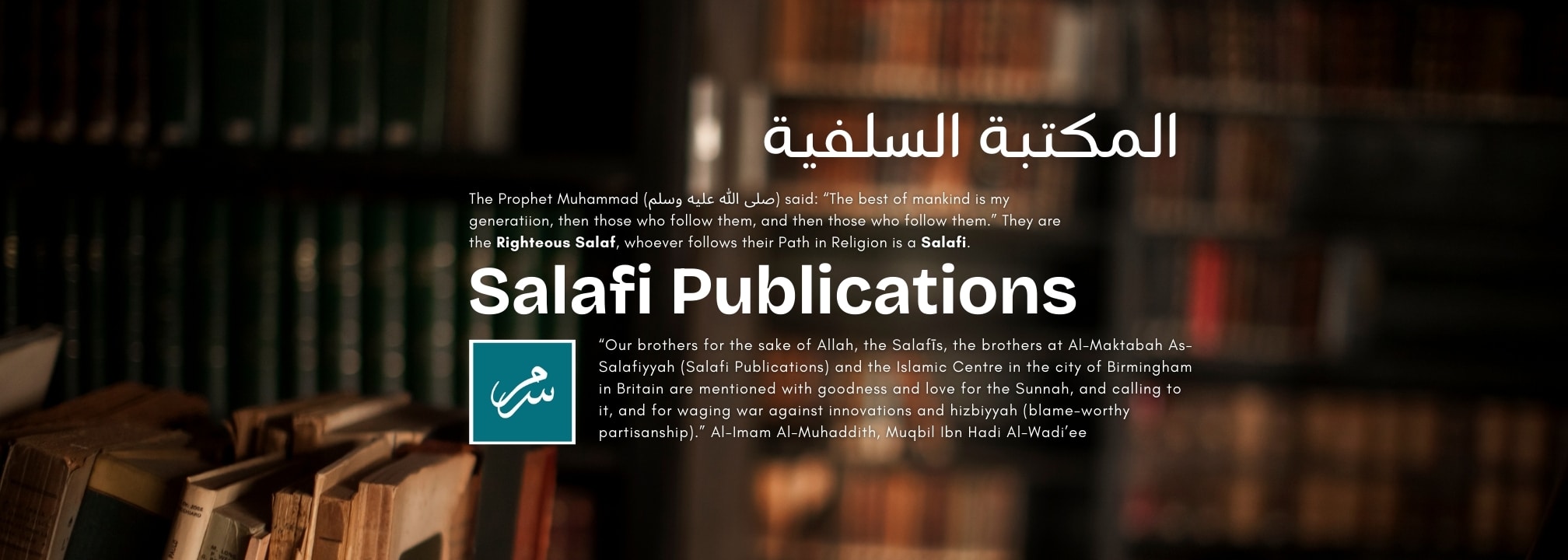
Shaikh ʿAbdul-ʿAzīz ibn ʿAbdullāh ibn Bāz wrote concerning the ruling of translating the Jumuʿah Khutbah, saying [1]:
“From ʿAbdul-ʿAzīz ibn ʿAbdullāh ibn Bāz to the noble brother (…) — may Allāh safeguard him: as-Salāmau ʿalaikum wa raḥmatullāhi wa barakātuhu, to proceed:
Then your gracious letter dated 26/8/1383H — may Allāh bestow His continued guidance upon you — has reached me, and I had understood what it contains concerning some educated people in the town of Kātān Kādī [2] to be found in the south of the island of Ceylon who wrote to you, and mentioned that the inhabitants of this town number two hundred thousand [3], and that they have disagreed concerning translation of the Jumuʿah Khutbah into their local Language. So your eminences desired to know what is correct in this matter in accordance with the principles of the put Legislation, and will produce benefit for those addressed by the Khutbah. So therefore, in response to your request, and in realization of your desire, and to participate in rectifying affairs between the Muslims and resolving disputes of disputants, and to strive to spread Islamic teachings and guidance brought by the Prophet Muhammad (salallāhu ‘alaihi wasallam) — in the language of the Noble Qurʾān, and in other languages which are spoken, I will mention to your in this letter that which I know from the pure Legislation with regard to this matter, so I say:
All praise is for Allāh and may He extol and bestow peace and security upon the Messenger of Allāh, and upon his family and true followers, and his Companions, and those who ally themselves to him; to proceed:
Then the scholars — may Allāh have mercy upon them — have disagreed concerning the permissibility of translating the Khutbah given from the minbar on the day of Jumuʿah and the two ʿEids into non-Arabic languages.
So a group of the people of knowledge prohibited that, out of their desire — may Allāh be pleased with them — that the Arabic language should remain and be adhered to, and so that the way of the Messengers (ﷺ) and his Companions — radiyallāhu ʿanhum — should be followed, in delivering the Khutbahs in the Arabic language in non-Arab lands and elsewhere; and to encourage the people to learn the Arabic language and to give due care and attention to that;
Whereas others from the people of knowledge held that it is permissible to translate the Khutbah into a non-Arabic language of those who are being addressed, or the majority of them do not know the Arabic language: considering the purpose and meaning for which Allāh legislated the khutbah, i.e. to cause the people to understand the rulings that Allāh had legislated for them; and to understand the sins that He has forbidden them from; and to guide them towards noble manners and praiseworthy characteristics, and to warn them against everything contrary to that.
So there is no doubt that observance of the meanings and desired goals has precedence and is more binding than mere observance of wordings and outward forms; especially when those being addressed do not pay attention to the Arabic language, and a khutbah delivered in it has no effect upon them, and they do not hasten and show eagerness to learn it; so the desired goal will not then be attained, and the reason for remaining fixed upon the Arabic language is not achieved. Therefore it becomes clear, to one who carefully considers, that the saying that it is permissible to deliver the khutbah in a language understood by those who are addressed so that they can understand it and comprehend what is meant, this has priority and has more right to be followed. This is especially the case when failing to translate leads to disputes and arguments: there is not doubt that in such a situation it becomes incumbent to translate, in order to attain the required benefit and to remove detriment.
Then it there are those who understand the Arabic language amongst those who are addressed, then what is legislated for the khaṭīb is that he should combine the two languages, so that he delivers the khutbah in Arabic and then repeats it in the other languages which is understood by the rest of the people: so that he gathers the two benefits and repels harm and puts an end to disputing between those who are addressed.
So this is proven by many evidences from the pure Legislation, from them is what has preceded, i.e. that the desired goal of the khutbah is to benefit those who are addressed by it and to remind them of Allāh’s rights, and to call them to Him, and to warn them against whatever Allāh has forbidden; and this will not be attained except in their language; and from them is that Allāh (the Perfect ) sent the Messengers (ʿalaihumus-Salām) speaking the language of their peoples, in order to cause them to understand what Allāh (the Mighty and Majestic) said:
وَمَا أَرْسَلْنَا مِن رَّسُولٍ إِلَّا بِلِسَانِ قَوْمِهِ لِيُبَيِّنَ لَهُمْ
[meaning:] “And We did not send any Messenger except that he spoke in the language of his people, to cause them to understand that which Allah sent him with.” — Sūrah Ibrāhīm (14):4
And Allāh (the Mighty and Majestic) said:
كِتَابٌ أَنزَلْنَاهُ إِلَيْكَ لِتُخْرِجَ النَّاسَ مِنَ الظُّلُمَاتِ إِلَى النُّورِ بِإِذْنِ رَبِّهِمْ إِلَىٰ صِرَاطِ الْعَزِيزِ الْحَمِيدِ
[meaning:] “This Qurʾān is the Book which We have sent down to you, O Muḥammad, for you to lead the people out of the darkness of misguidance and Unbelief into the light of true Faith, by the permission of their Lord, guiding them to the Straight Path legislated by the Mighty One, the One deserving of all praise.” — Sūrah Ibrāhīm (14):1
—So how will it be possible to lead them out of darkness into light when they do not understand its meaning?!
And they do not comprehend what Allāh intends by it?!
So it is known that it is essential to translate to make the meaning clearly understandable, and to clarify the right of Allāh (the Perfect) to them, if they are unable to learn its language, and are unable to give due attention to that.
So from this is the fact that the Messenger (ﷺ) commanded Zayd ibn Thābit to learn the language and to establish the proof upon them, just as he would read their letters when they came and explain what they meant to the Prophet (ﷺ); and from this is that when the Companions (radiyallāhu ʿanhum) fought against the non-Arabic lands of the Persians and Romans they did not fight them until they called the people to Allāh (the Perfect) in the Arabic language, and they ordered the people to learn Arabic; and as for those of them who were ignorant of it, then they called him in his language and caused him to understand what was required in the language he understood, so the proof was established by that, and their excuse was cut off. So there is no doubt that this way must be adopted, particularly towards the end of time, and when Islām is a stranger, and when each tribe of people cling onto their own language; so the need for translation is one of great necessity, and the callers call will not be completed except with it.
So I ask Allāh to guide and grant the Muslims, wherever they are, knowledge and understanding of His Religion, and that they adhere to His Legislation and that they remain upright upon that, and that He rectifies those in charge of their affairs, and that He aids His Religion, and humiliated His enemies, indeed He is bounteous and generous.
Was-Salāmu ʿalaikum wa raḥmatullāhi wa bakātuhu wa Sallallāhu ʿalā ʿAbdihi wa Rasūlihi Muḥammad, wa Ālihi was Saḥbihi ajmaʿīn, wa man tabiʿahum bi-iḥsān ilā yawmid-Dīn.
—The head of the committee for scholarly research, verdicts, Daʿwah, and guidance.
[1] ‘Fatāwā al-Lajnah ad-Dāimah’ vol. 7, p. 251.
[2] (كاتان كدى) There appears to be a mistake in the question since maps of Ceylon do not show any sizeable town with any such name, and the only city in Ceylon having more than 100,000 inhabitants in the 1960’s was the capital Colombo which had 500,000 inhabitants. The next largest towns in the south were Kandy (with a population of 70,000) & Galle (with a population of 65,000). [New Caxton Encyclopedia, vol. 4, p. 1226; 1969 edn]
[3] Ibid.

Be the first to comment